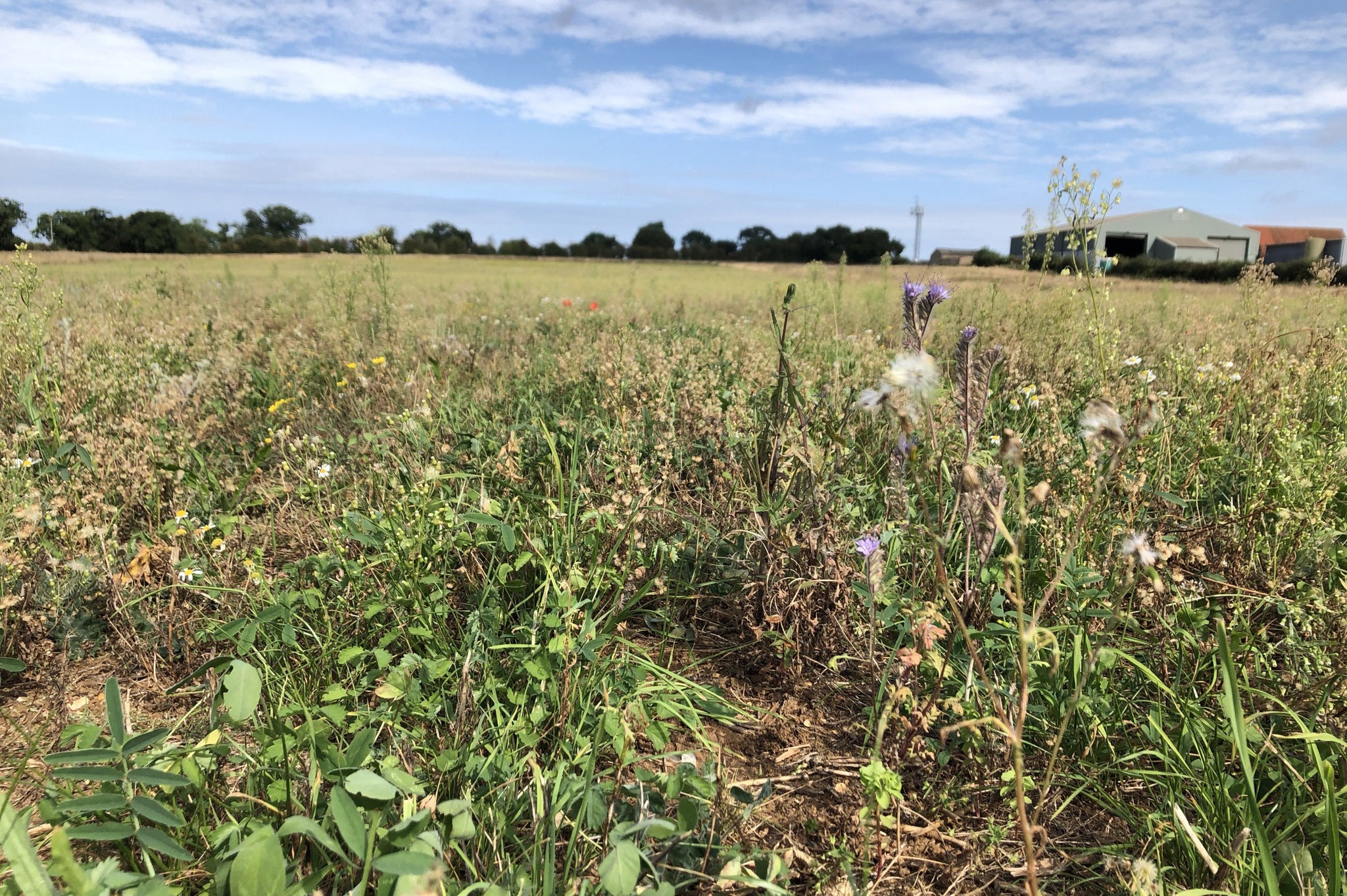Farmers and landowners to be paid to ‘rewild’ countryside
Schemes aim to halt decline in species and reduce greenhouse gas emissions, government says

Your support helps us to tell the story
From reproductive rights to climate change to Big Tech, The Independent is on the ground when the story is developing. Whether it's investigating the financials of Elon Musk's pro-Trump PAC or producing our latest documentary, 'The A Word', which shines a light on the American women fighting for reproductive rights, we know how important it is to parse out the facts from the messaging.
At such a critical moment in US history, we need reporters on the ground. Your donation allows us to keep sending journalists to speak to both sides of the story.
The Independent is trusted by Americans across the entire political spectrum. And unlike many other quality news outlets, we choose not to lock Americans out of our reporting and analysis with paywalls. We believe quality journalism should be available to everyone, paid for by those who can afford it.
Your support makes all the difference.New plans have been unveiled which the government says will restore up to 300,000 hectares of natural habitat within two decades.
Farmers and landowners will be paid for action that benefit the environment in two schemes, which promote more space being used for nature and changes to how land is used across England.
The government said the schemes aim to halt a decline in species and reduce greenhouse gas emissions, as the UK aims to achieve net zero by 2050.
Numerous rewilding projects have already been launched in the country in a bid to return landscapes and its ecosystems to a more natural state - and sometimes reintroduce wildlife, such as beavers.
The Department for Environment, Food and Rural Affairs (Defra) said the new Local Nature Recovery and Landscape Recovery schemes - announced on Thursday - would help to restore up to 300,000 hectares of wildlife habitat by 2042.
They will also bring up to 60 per cent of England’s agricultural soil under sustainable management by the end of the decade, the government said.
The Local Nature Recovery Scheme will pay farmers that makes space for nature- for example, by creating wildlife habitat and planting trees - both in farmed landscape and the wider countryside.
Meanwhile, the Landscape Recovery scheme will pay landowners and managers who want to change how land is used or restore habitats and ecosystems. This could cover the creation of new nature reserves, woodland and wetlands, as well as the restoration of floodplains.
Up to 15 projects will be chosen in the first wave of applications for Landscape Recovery, which will at first focus on recovering England’s threatened native species and restoring rivers and streams.
George Eustice, the environment secretary, said: “Through our new schemes, we are going to work with farmers and land managers to halt the decline in species, reduce our greenhouse gas emissions, increase woodland, improve water and air quality and create more space for nature.”
Towards the end of last year, a group of England’s largest land owners and managers committed to large-scale habitat restorations and a major tree-planting programme over 10. million acres of land.
Join our commenting forum
Join thought-provoking conversations, follow other Independent readers and see their replies
Comments